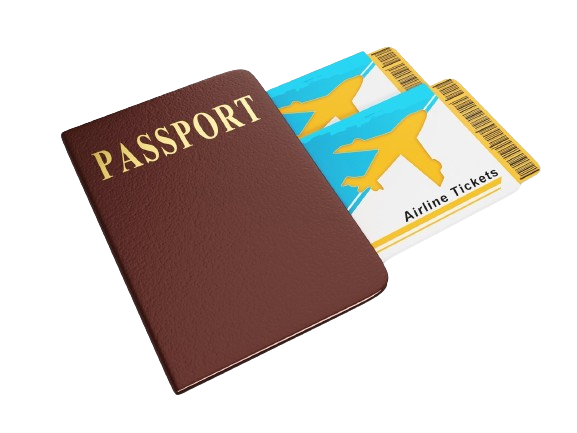Complete Guide To
E-commerce Licence in Dubai
If you are planning to apply for an e-commerce licence in Dubai or in any other Emirate, we have prepared a simple guide that will help you easily understand everything you need to know to launch your own e- commerce company and be a part of the UAE’s booming online retail industry.

What is an E-commerce License?

The e-commerce industry in the United Arab Emirates is booming! In case you’re wondering why so many individuals are attempting to obtain an e-commerce license in Dubai, the reason is that the value of the UAE e-commerce market surged to USD 3.9 billion in 2020, signifying a 53% annual growth. Market analysts predict that by 2025, the UAE’s e-commerce industry would be worth USD 8 billion, and this is only the beginning. In just four years, that is more than double its present worth!
It makes sense that many are wanting to launch their own internet business and begin taking advantage of this enormous potential, which is presumably why you are here, with such enormous prospects waiting for prospective entrepreneurs.
How to apply for an e-commerce licence in the UAE
The application process for an e-commerce licence may differ for each jurisdiction, but we are giving you an overview so you can get a better idea of the documents you need to prepare and the processes you need to go through.
- Company name
- Business activity
- Copy of your passport or visa/entry stamp
- Share ratio
- Contact number, email and complete address of all company shareholders
- Photos (if required by the free zone)
Step 2: Liaise with your chosen free zone / mainland jurisdiction
- Submit the required documents to the free zone or mainland jurisdiction.
- Once they have received the documents, your e-commerce licence application will enter the stage of initial approval. In most cases, you have to make a payment to the free zone or mainland to initiate the application process. The rate of an e-commerce licence may start from AED 5,750, depending on the jurisdiction.
- Most jurisdictions require pre-approval first before they issue your licence. The application process may take 3 to 7 days in free zones, whereas your application can be processed on the same day or up to 2 days in the mainland.
Step 3: Wait for your documents to be released
- Once your licence has been issued, then the digital documents will be sent to you. Some free zones may require original documents, which will be sent to you at a later date.
Step 4: Start your visa application
· If the e-commerce licence package you chose comes with visa(s), then the visa application process will begin after the immigration card has been issued.
Which free zones offer an e-commerce licence?
There are many free zones in the UAE that offer an e-commerce licence, or an alternative that permits you to conduct e-commerce activities. Here are some of the top UAE free zones where you can apply for an e-commerce licence:
- Dubai Multi Commodities Centre (DMCC)
- Dubai World Trade Centre (DWTC)
- Dubai South
- Fujairah Creative City
- Ras Al Khaimah Economic Zone (RAKEZ)
- Sharjah Media City (SHAMS)
- Sharjah Research Technology and Innovation Park (SRTIP)
Can you get an e-commerce licence from the mainland?
Yes! Mainland jurisdictions also provide an e-commerce licence and we discuss them in the next section.
What are the different types of e-commerce licences in the mainland?
If you are getting a mainland e-commerce licence, then you need to familiarise yourself with the options offered by different mainland jurisdictions.
Dubai
Issued by the Dubai Department of Economic Development (DED), the eTrader licence allows entrepreneurs to conduct business activities via social media channels. However, at the moment, the eTrader licence is only available to UAE and GCC nationals living in Dubai.
In addition, only a single owner can be registered and you cannot set up a physical shop or apply for visas.
Another option is to obtain a general trading licence in Dubai mainland, which allows you to conduct commercial activities online. The prices for this premium trading licence start from AED 30,000.
Abu Dhabi
The Abu Dhabi Department of Economic Development (ADDED) issues Tajer Abu Dhabi, its version of an online trading licence for UAE nationals and residents, as well as GCC nationals. It permits licence holders to add their online business activities to their existing trade licences, or get a new licence to perform business activities online (through websites or social media channels).
This e-commerce licence supports three kinds of legal structures:
- Establishment for Emiratis and GCC nationals
- Single shareholder company for Emiratis and GCC nationals
- Limited Liability Company for UAE residents with Emirati partners
Sharjah
Home-based and online businesses that operate via social media channels can apply for an Eitimad licence, which is issued by Sharjah Economic Development Department (SEDD). The licence is available to UAE nationals living in Sharjah. They should also be at least 18 years old.
Ras Al Khaimah
Ras Al Khaimah has also launched its own online business licence: the Virtual Merchant Licence. This licence allows entrepreneurs to conduct business activities via social media platforms, websites or smartphone applications.
Available to UAE nationals living in Ras Al Khaimah, the virtual merchant licence covers the following business activities:
- Online retail
- Information technology
- Real estate brokerage
- Advisory/consultancy
- Professional and information activities performed via technological channels
FAQ about e-commerce business setup in the UAE
For an e-commerce company, a basic business setup package might begin at AED 5,750. However, the price may vary based on your needs, such as if you want additional resident visas or office space.
Depending on the free zone in which you are establishing, most don't need an office space.
The free zone that best suits your particular needs is the ideal one for your company. Thus, when examining the many free zone possibilities at your disposal, take into account your product, target market, and target audience.
It's important to keep in mind that many free zones are sector-specific, meaning they are specifically created to serve particular industries (such as the media, finance, education, etc.), whilst other free zones are generalist and may thus support a variety of enterprises.
The United Arab Emirates has around fifty free zones. Making the incorrect choice might result in costly errors, so be careful to choose wisely to put yourself in the best possible position for success.

